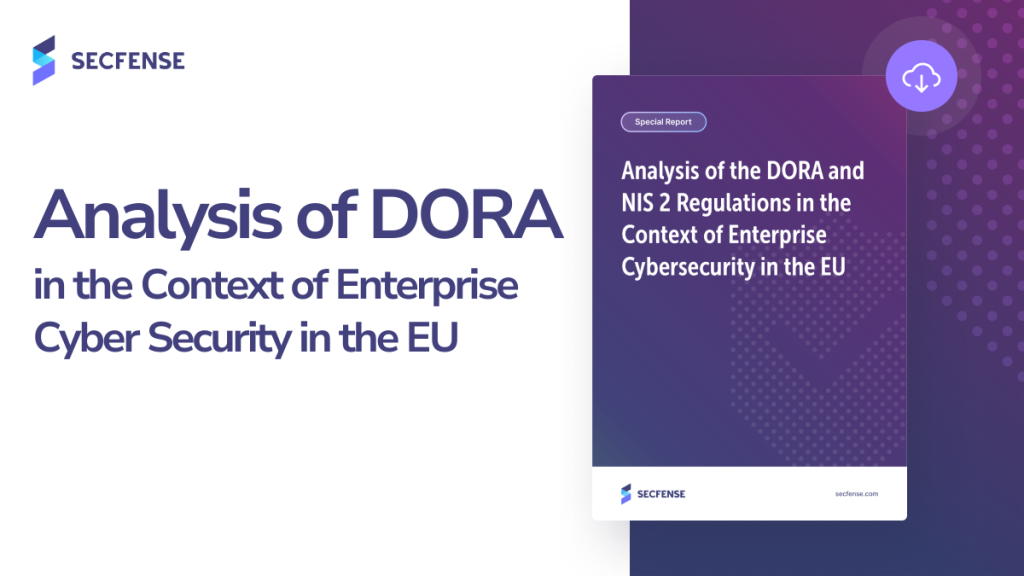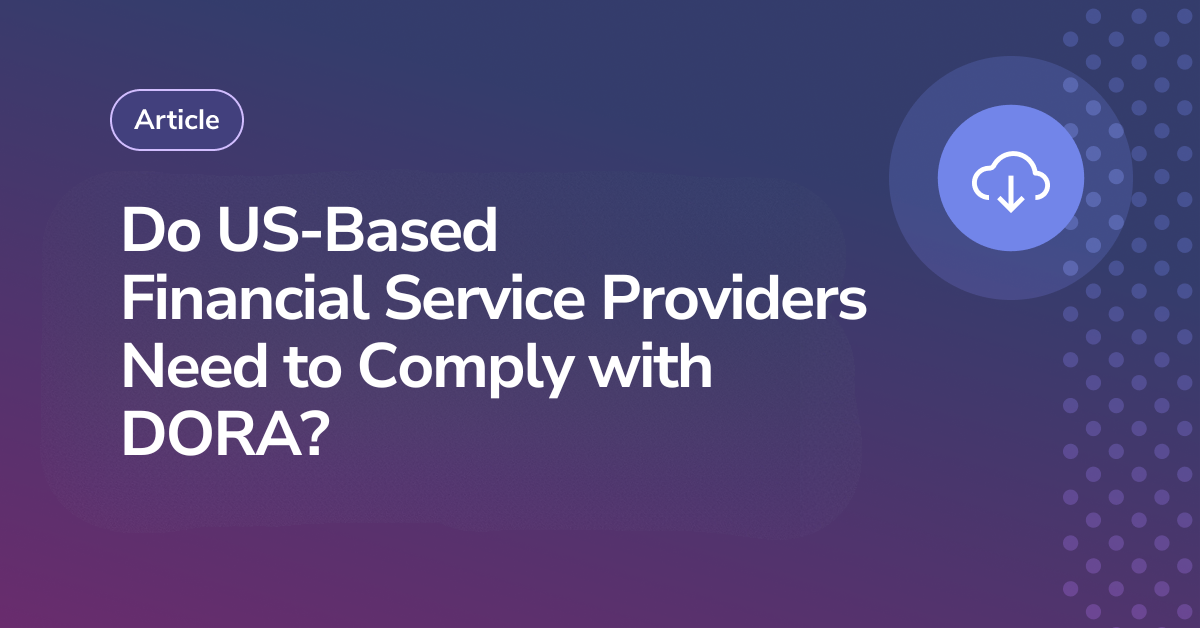If your U.S.-based company serves EU financial clients, the Digital Operational Resilience Act (DORA) likely applies to you.
This EU regulation reshapes cybersecurity and operational resilience standards for banks, insurance firms, fintechs, and their ICT third-party providers no matter where those providers are based.
This guide explains:
- What DORA is and why it matters to U.S. businesses
- Who must comply
- Key requirements for ICT providers and financial service companies
- How technology like Secfense can help you align with DORA quickly and without costly system changes
What Is the Digital Operational Resilience Act (DORA)?
The Digital Operational Resilience Act is an EU regulation aimed at strengthening the cybersecurity and operational resilience of the financial sector. It applies to:
- Banks, insurance companies, and other regulated financial entities
- Fintech providers serving EU markets
- ICT third-party service providers that support those entities
DORA’s goal is to ensure that financial institutions and their suppliers can withstand, respond to, and recover from cyber threats and ICT incidents.

Does DORA Apply to U.S. Companies?
Yes – if you provide critical ICT or financial services to EU-based financial entities.
DORA explicitly covers “ICT third-party service providers established in a third country,” meaning any non-EU provider working with EU financial organizations falls in scope.
Examples include:
- Cloud service providers
- Cybersecurity vendors
- Authentication and access management providers
- Data hosting and processing services
Key DORA Compliance Requirements for U.S. Companies
If you’re a U.S. ICT or financial service provider working with EU clients, you’ll need to meet the following obligations:
1. ICT Risk Management
Implement a robust risk management framework to identify, mitigate, and monitor ICT threats that could impact operational resilience.
2. Incident Reporting
Develop clear processes to detect and report ICT-related incidents to the relevant EU authorities within required timeframes.
3. System Testing and Resilience
Perform regular penetration tests, vulnerability assessments, and operational resilience exercises. Regulators may request results, even from non-EU providers.
4. Contractual Alignment
Ensure all contracts with EU financial clients explicitly define your cybersecurity, risk management, and incident reporting responsibilities.

Why DORA Compliance Matters for U.S. Providers
- Business continuity – Non-compliance could mean losing the right to serve EU financial entities.
- Competitive advantage – Compliance can differentiate you from non-compliant competitors.
- Regulatory alignment – Meeting DORA standards often aligns with other global regulations, improving your overall security posture.
How Secfense Helps U.S. Companies Achieve DORA Compliance
Secfense offers a no-code, compliance-ready authentication platform that addresses some of DORA’s toughest technical requirements:
- Phishing-Resistant MFA – Eliminate passwords and protect against credential-based attacks.
- Passwordless for Workforce & Customers – Use passkeys and FIDO2 authentication for secure, frictionless logins.
- Privileged Access & Microauthorizations – Apply per-action authentication for high-risk operations.
- Zero Trust Authentication – Enforce identity verification at every step, assuming breach by default.
- Regulatory Compliance Alignment – Meet strong authentication requirements under DORA, NIS2, and PSD2 without replacing legacy systems.
Because Secfense works without modifying application code, U.S. companies can quickly deploy FIDO2 and passkey-based authentication across all applications – cloud or legacy – and demonstrate compliance in audits.
Proof of Value: From Assessment to Compliance in One Week
Secfense’s Proof of Value (POV) program lets you secure one high-value application with phishing-resistant MFA in just one week:
- No code changes or downtime
- 10 hours of your team’s time
- Immediate audit-ready evidence of strong authentication controls

Key Takeaways
- If your U.S. company serves EU financial institutions, DORA likely applies to you.
- Compliance requires strong ICT risk management, incident reporting, resilience testing, and contractual alignment.
- Secfense enables rapid, no-code adoption of phishing-resistant, passwordless authentication – a core DORA requirement.
🚀 Next Step: Secure Your First Application Under DORA Standards
Don’t wait until regulators ask for proof of compliance.
📅 Book your discovery call today and be ready to demonstrate DORA compliance to your EU clients – with phishing-resistant MFA in place in just one week.
